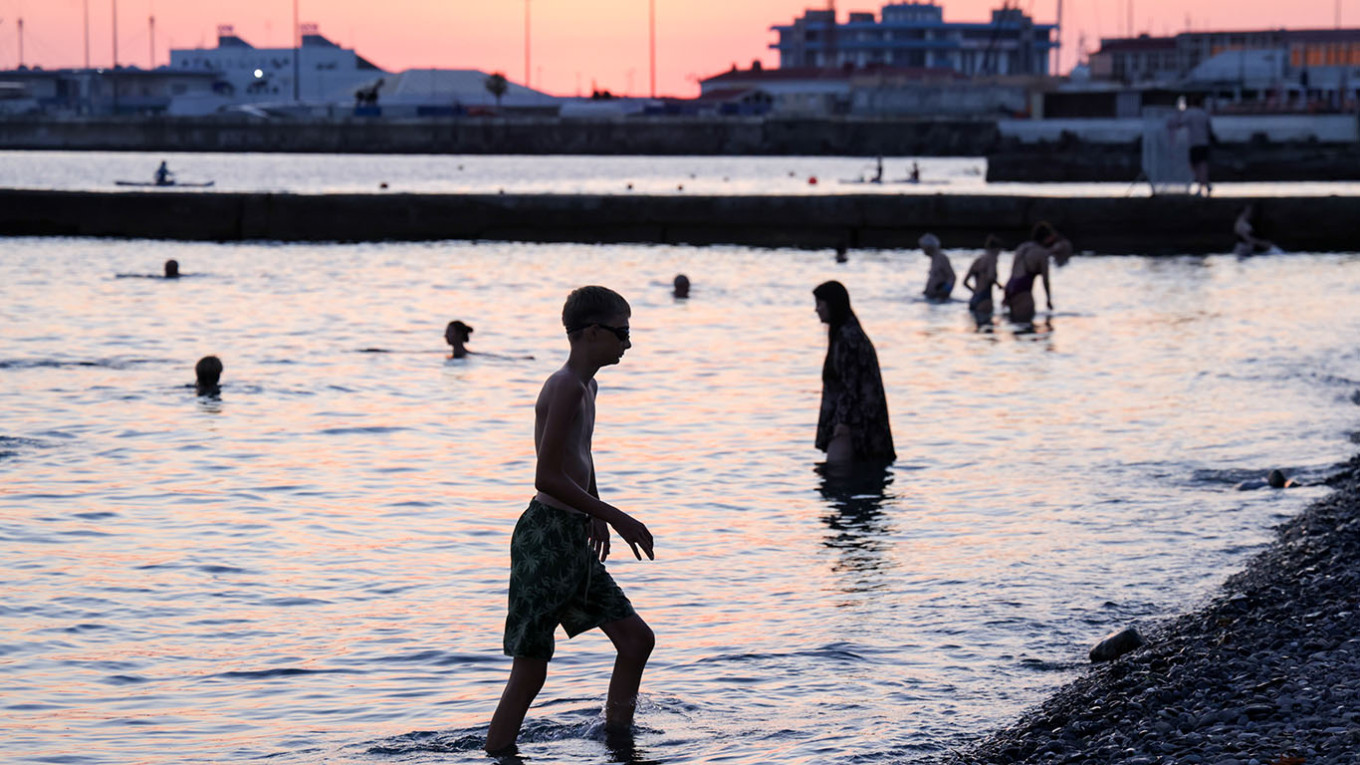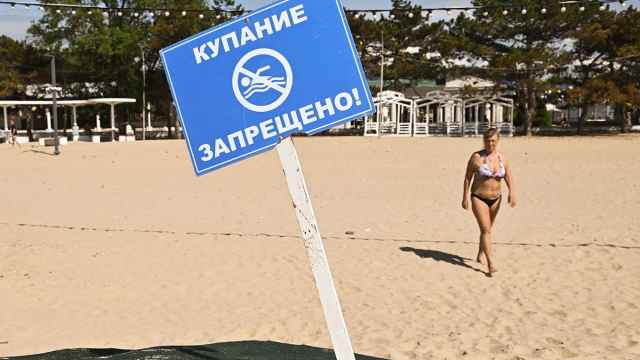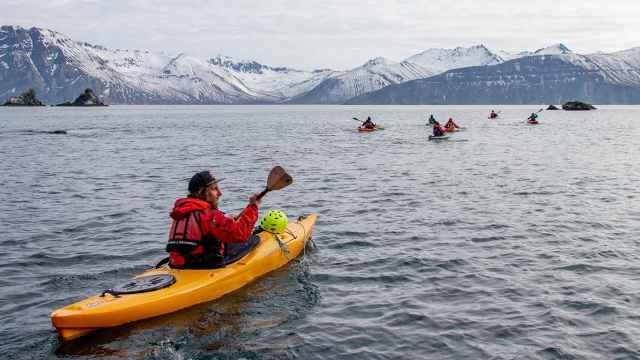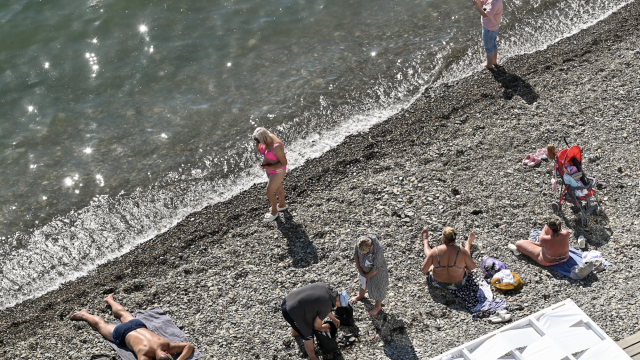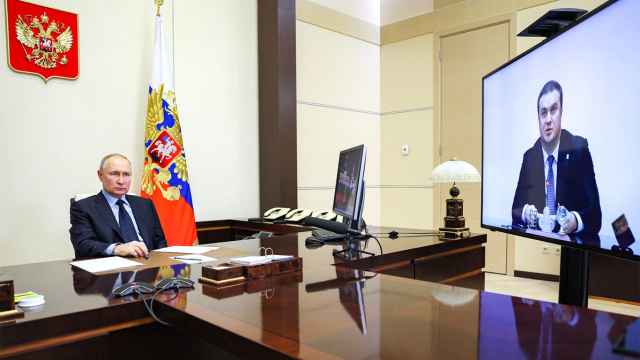Hello and welcome to this week’s edition of Regions Calling, your guide to developments beyond the Russian capital from The Moscow Times.
Russia’s fifth wartime elections dominated regional coverage over the past week, with more than 45,000 government positions up for grabs across 80 regions, including 19 gubernatorial, 11 parliamentary and 25 city council races. The races were accompanied by widespread reports of electoral fraud, including tried-and-true tactics of carousel voting and ballot stuffing.
Though a few gubernatorial races, namely in the Irkutsk and Arkhangelsk regions, initially promised some suspense, all resulted in sweeping victories of United Russia-backed incumbents.
The ruling party also emerged victorious in regional parliamentary races, taking 81% of all available seats in the regions, according to preliminary results. Still, a few surprise opposition victories came out of the Kostroma region and the republic of Tyva.
Local-level elections were the only ones to result in notable upsets for United Russia. Candidates backed by the Communist and New People parties, as well as those listed as independents — though some with likely ties to the ruling party — emerged victorious in several races for district and city heads in the republics of Sakha, Buryatia and Khakassia.
With regional elections over, the new school year in full swing and lawmakers returning to work, this seems like the perfect time to look back at where and how Russians chose to spend their summer holidays — decisions that provide important clues for the public mood and the economy.
But first, here is what else you might have missed in Russia’s regions and ethnic republics:
The Headlines
Anti-Kremlin Yakutian shaman Alexander Gabyshev was transferred from a high-security psychiatric facility in the Primorye region to a general hospital in Yakutsk, the capital of his native republic of Sakha, following a protracted legal battle.
Gabyshev, 56, became famous for undertaking a pilgrimage to Moscow to “exorcize” Vladimir Putin in 2019. Recognized as a political prisoner by the Memorial human rights group and Amnesty International, Gabyshev spent most of the past five years in psychiatric hospitals. His supporters and rights advocates say he has been subjected to life-threatening treatments.
Meanwhile, authorities in Sakha are struggling to launch the heating season due to a lack of funding for utilities. Temperatures across the vast and scarcely populated republic have already plunged below freezing.
In the republic of Bashkortostan, security forces raided the homes of and detained four female activists and a journalist. Though the charges against them are still unknown, the women may have been targeted for their alleged links to controversial opposition figure Svetlana Lada-Rus, who is on Russia’s wanted list.
In the North Caucasus republic of Kabardino-Balkaria, three people were killed and several others injured in a cable car crash on Mount Elbrus. Law enforcement authorities have detained the CEO and head technician of a chairlift company connected to the incident. The cable car, which connects two points near the peak of Europe’s highest mountain, has been in operation since 1981.
In the northwestern Vologda region, eccentric Governor Georgy Filimonov is pressing ahead with an aggressive (and unpopular) anti-alcohol campaign. Nearly half of all liquor stores in the region have closed since the campaign began in March, while the remaining ones have been forced to invest in rebranding.
Though ostensibly aimed at improving public health and well-being, Vologda’s campaign has instead led to an increase in black-market alcohol sales, according to local reports. Yet a handful of other regions in Russia’s Far East, including Amur, Magadan and Sakha, are also toying with the idea of tightening measures against alcohol abuse.
The Spotlight
Annexed Crimea and ‘Unfriendly’ Shores: Where Russians Vacationed This Summer
With monsoons and colder temperatures arriving on the Black Sea coast this month, the peak tourism season is officially over, even in the warmest parts of Russia.
Tour operators are now reviewing the initial results of a summer tourism season that was wrecked by countrywide flight disruptions, internet shutdowns and the consequences of the massive oil spill in the Kerch Strait in December 2024.
Domestic shifts
Domestically, the overall number of vacation bookings made during the high season between May and September has dropped by 13% compared to last year, according to the Association of Tour Operators in Russia (ATOR).
“The decline in bookings…is linked to a whole set of interrelated factors. First, the rise in hotel and transportation prices within the country has slowed the growth of domestic tourism,” said Sergei Romashkin, the vice president of ATOR’s domestic tourism branch.
Romashkin noted that sales of tour packages reflect an overall shift in consumer spending in Russia, with many people opting to put more money into savings as the economy shows growing signs of a recession.
“The closure of Anapa’s beaches immediately deprived about 3 million tourists of their vacations. Not all of them went to other resorts — some opted for short independent trips closer to home,” ATOR cited Romashkin as saying.
Tourism in Anapa, once the most popular coastal resort, was essentially brought to a standstill after authorities banned swimming along its shores due to persistent contamination.
Only 1.5 million tourists visited Anapa between January-September 2025 compared to 4.3 million in the same period last year, according to government statistics cited by Kommersant.
Russia’s Black Sea coast saw up to a 25% decline in tour bookings compared to last year. Yet its resorts remain the most popular tourist destination among Russians, accounting for up to 45% of all reservations, according to ATOR.
Meanwhile, bookings at coastal resorts in annexed Crimea saw up to a 40% increase, making it the second-most-popular destination for Russian tourists, followed by North Caucasus mineral springs resorts and Moscow and St. Petersburg’s cultural attractions.
ATOR notes that Russians have become overall less spontaneous with their travel plans, booking holidays at least three months in advance and choosing cheaper accommodation options.
Foreign escapes
An evident decline in disposable income, coupled with limited international flights and logistical hurdles posed by global sanctions over the Ukraine invasion, did not stop millions of Russians from vacationing abroad.
On the contrary, demand for foreign vacation packages among Russians grew by 20.5% compared to last year, ATOR said.
Turkey, Egypt and the UAE occupy the top three spots in the list of foreign destinations most popular among Russian tourists, followed by Vietnam and Georgia’s breakaway Abkhazia, with the former seeing a 950% increase in bookings compared to last year.
Meanwhile, the Russian government has been trying to encourage citizens to travel to a pre-approved list of “friendly countries.” Under the policy, tour companies working only with pre-approved destinations would be offered certain financial incentives to, in turn, be able to lower the prices of tour packages they offer.
Only Belarus and the breakaway Georgian regions of Abkhazia and South Ossetia made it to the list of “friendly countries” for Russian tourists, meaning the measure is unlikely to appeal to large players on Russia’s travel market that already make large profits from international tour packages, according to ATOR.
Despite the EU restricting visas for Russian nationals in the wake of the Ukraine invasion, the overall number of Schengen visas obtained by Russian citizens has been rising since 2023, according to The Telegraph.
Russians were issued 552,600 Schengen visas in 2024 — a 9% increase from the year before.
The number of hotel bookings by Russian passport holders is also growing across Europe, with Italy, Hungary and France leading the way.
But this growing stream of Russian tourists in Europe — albeit smaller than in pre-war years — could thin out further if the EU curbs tourist visas for Russians as part of its latest sanctions against Moscow.
The rumored ban already sparked a loud backlash from the Russian opposition, who argue that maintaining a connection between Russians and the EU is vital.
“There are no grounds to believe that pressure on all citizens of the country can influence the opinion of Russia’s leadership and its president,” Yulia Navalnaya said. “For the purpose of achieving peace in Europe, it is counterproductive to assist Russian authorities in isolating Russian society.”
Photo of the Week

A person dressed in a squirrel costume casts a ballot in gubernatorial elections in the Irkutsk region, where United Russia’s incumbent Igor Kobzev faced rare competition from Communist Party predecessor Sergei Levchenko.
Despite his high-profile challenger, Kobzev won the race with 60.79%. His re-election cost around 300 million rubles ($3.6 million) in advertising and political consulting fees, according to leaked documents.
Culture & Entertainment
- A series of concerts will be held in Berlin, London and Amsterdam in memory of the late Russian musician Pavel Kushnir starting Friday. Kushnir, a pianist and anti-war activist, passed away last year in a pre-trial detention center in the Jewish autonomous district. He would have turned 41 this month. Information on dates and tickets is available here.
- The Pavel Kushnir Foundation also released his first recording, the restored version of Rachmaninoff's preludes performed live at a festival in Tambov in 2010.
- The Free Russia NL activist group and De Balie arts center will host “From the Tsars to Putin: the Colonial Legacy of Russia” on Sept. 26 in Amsterdam, a public talk that will explore how age-old imperial myths still influence Russian politics, culture and the mindset of its citizens. MT’s special correspondent Leyla Latypova will be among the event’s speakers. More information can be found here.
A Message from The Moscow Times:
Dear readers,
We are facing unprecedented challenges. Russia's Prosecutor General's Office has designated The Moscow Times as an "undesirable" organization, criminalizing our work and putting our staff at risk of prosecution. This follows our earlier unjust labeling as a "foreign agent."
These actions are direct attempts to silence independent journalism in Russia. The authorities claim our work "discredits the decisions of the Russian leadership." We see things differently: we strive to provide accurate, unbiased reporting on Russia.
We, the journalists of The Moscow Times, refuse to be silenced. But to continue our work, we need your help.
Your support, no matter how small, makes a world of difference. If you can, please support us monthly starting from just $2. It's quick to set up, and every contribution makes a significant impact.
By supporting The Moscow Times, you're defending open, independent journalism in the face of repression. Thank you for standing with us.
Remind me later.



